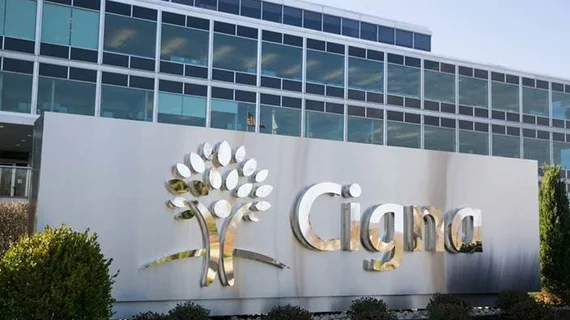Cigna announces changes to improve prior authorization, customer satisfaction
Cigna Healthcare said its planning to make changes to “improve patient and physician experience,” particularly around coverage transparency and the prior authorization process for submitting medical claims.
The company announced the “multi-year commitment” on Monday, saying that it will be expanding client-facing roles, including both patient and provider customer support. Cigna added this is all in an effort to help patients with serious and complicated medical cases to better navigate their options and improve their health.
Additionally, more hands-on support for physicians is done with the goal of eliminating “information gaps” that cause prior authorization submissions—typically used to reimburse care for Medicare Advantage patients—to be denied, the company said.
“We are committing to significantly improving the prior authorization process for patients and for those providing care,” CMO Amy Flaster, MD, said in a statement. “We want to reduce the burden on our physician partners by making it easier to submit a complete authorization request quickly and correctly the first time, expediting the path to getting needed services approved and giving providers their time back so they can invest it in what matters most: patient care.”
Details were outlined in both a statement and a video posted on its website titled “Our commitment to better.”
Changes will include an annual Consumer Transparency Report that, beginning in 2026, will provide details on Cigna’s claim reimbursements, including reasons for denials and steps patients and providers can take for a resolution. Further, the company said it will be tying executive compensation to customer satisfaction—though what that specifically means remains to be seen.
The news follows the murder of former UnitedHealthcare CEO Brian Thompson, whose death ignited a fervor on social media, where users aired their grievances against the healthcare system. Thompson was allegedly killed by Luigi Mangione, 26, whose supposed manifesto says corruption was a motivation for the slaying.
Mangione awaits trial on first-degree murder charges in New York.
UnitedHealthcare had received heavy criticism over its use of an AI tool to deny medical claims. A lawsuit challenging the policy is still wrapped up in the courts.
Cigna, too, has seen its share of controversy. In May of last year, Debby Day, MD, a former medical director with the company, blew the whistle on what she called a culture of “deny, deny, deny” for insurance claims.
Cigna denied Day’s accusation at the time, referring to her as a “disgruntled former employee.”
HealthExec reached out to Cigna for clarification on the whistleblower’s claims and the company’s plan to link executive compensation to customer satisfaction.

